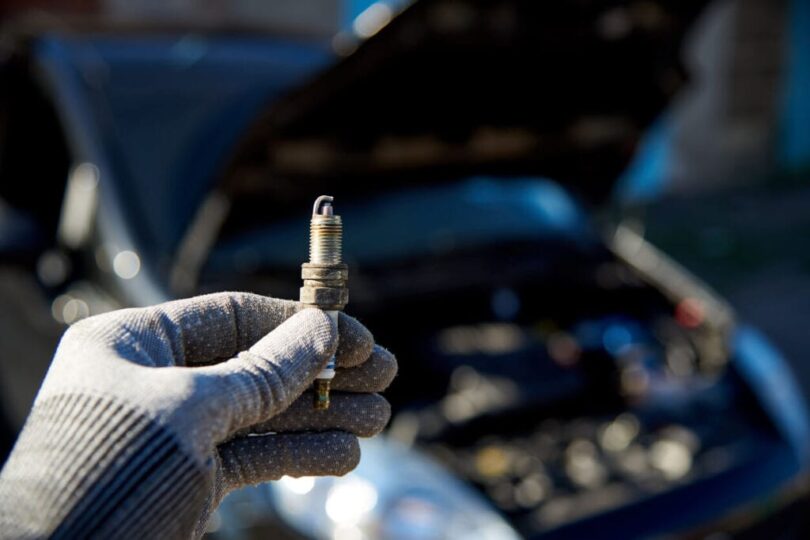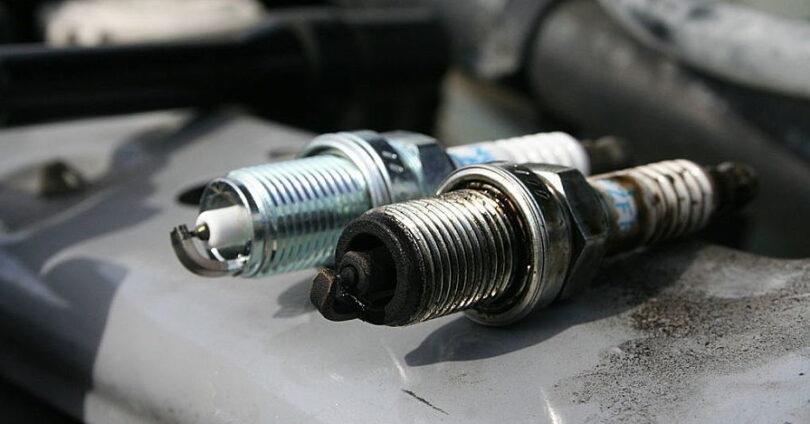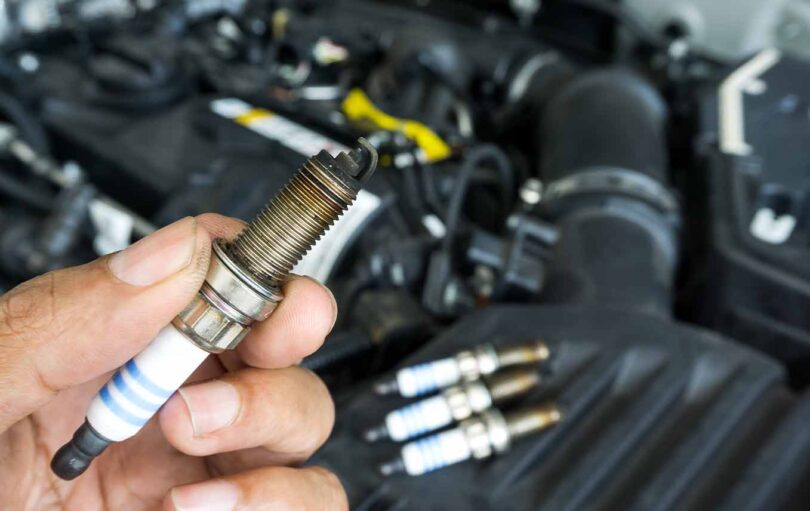 |
Spark plugs are a vital part of all vehicles; a car won’t start without them. These little electrical devices transmit signals in the engine, igniting a fuel and air combination. This, in turn, begins the process of combustion that powers a vehicle. Additionally, if any are faulty, the vehicle may fail to function properly.
In this article, you’ll read about how to diagnose engine issues by understanding spark plugs. But first, it’s important to understand how they really work.
Understanding How They Work
They’re found in a gasoline engine’s cylinder head, and their main responsibility is to produce the initial signal which ignites the engine. Spark plugs are tethered to electric cables called high tension (HT) leads, regulated with an engine control unit. When ignited, a process is started in the combustion chamber. Here, a combination of air and gasoline gets ignited and produces power.
If any of them lose proper functionality, your engine will encounter several mechanical issues. Some potential problems that could occur are engine stalling, a weak engine, hesitation, and sometimes even engine cut-off.
While these devices may all seem almost identical, they can be specific for each engine—some engines will need four, while others may require six. Similarly, the cost of replacing this delicate part also varies between cars. Bigger engines, like a V12, have more plugs and will cost more. To know more about replacement costs, read this detailed guide.
Now that you know a thing or two about how they work, it’s time to understand what malfunctions might mean for an engine.
How Long Will They Last?
It’s difficult to say how long they’ll last. Lifespan will vary depending on your vehicle model and usage. In general, you’ll likely need a replacement set after around 30,000 to 50,000 miles. Regardless, you’re advised to examine them for any possible problems regularly. Otherwise, you’re exposed to a higher risk of your car unexpectedly and inconveniently failing.
Normally, your mechanic should assess the condition of spark plugs during every service interval. They’ll usually inspect for signs indicating damage or wear. If there are such signs, a replacement may be needed to maintain a smooth-running engine.
It’s also important to understand that the lifespan will be affected by the quality of construction and the materials used to make them. For instance, those made with high-quality materials like iridium and platinum will usually last longer than those made of copper.
Signs You May Need Replacements
It’s easy to forget when to change your spark plugs. If your car hasn’t had a regular service for some time, it’s advisable that you look out for any possible signs or symptoms. Here are some signs that may be a cause for concern:
1. Sluggish Takeoff

Source: knowhow.napaonline.com
Among all possible causes of slow acceleration, broken spark plugs are one of the most common. If one isn’t operating correctly, it might struggle to generate a strong enough electric signal to ignite the substance in the engine chamber. If that happens, your vehicle may fail to generate the power it needs to propel itself.
2. Using More Fuel Than Normal
If it feels like a vehicle is guzzling up gasoline faster than normal, it’s a good idea to check that your spark plugs are okay. When these are out of order, they often cause an increase in fuel consumption. If possible, a mechanic should be capable of adjusting the gap between plug electrodes, which may resolve your issue.
3. Noticed A Difference In Idling

Source: familyhandyman.com
Idling noise is normal, but you may be experiencing problems if the noise has recently increased, especially if accompanied by additional vibrating. Though other potential causes of rough idling exist, spark plugs are common culprits. They tend to miss fire in the engine cylinders when they’re ill-functioning. This is what leads to stronger idling sounds and vibrations.
4. Trouble Starting
As you already know, spark plugs are necessary for the ignition process in a gasoline engine. If yours is struggling to start on the first try, these parts might be at fault. That said, there are other common causes of hard starting, such as a dead or faulty battery, fuel, or wiring problems.
5. Misfiring

Source: carro.sg
Maybe you’ve experienced difficulty starting, or you hear some spluttering sounds from the engine compartment. It’s a good idea to check for any malfunctions or damaged plugs. This is a likely indicator of a faulty ignition system. Misfiring may lead to some of the additional symptoms listed here, like increased fuel economy or a weak engine.
6. Stalling
Another sign is when your car hesitates when you speed up or slow down. Engine hesitation can result from too much air intake and a weak start in the internal chamber. The result here is a delay in power delivery.
What Spark Plug Condition Says About Your Engine

Source: autowranglers.com
When you inspect, you should look out for particular states that could signify their condition and that of your car. These are some of the main signs to take note of:
- Clean: It’ll be reasonably clean if it’s healthy. Some deposits are normal, don’t worry. If clean, it’s often an indicator that everything is running as it should.
- Oily: Oiled-up spark plugs are a sign that there may be an oil leak. If leaking oil is reaching these, it could clog and negatively influence. In this case, you should also find and resolve the cause.
- Soaked In Fuel: An immediate sign something is wrong. It shows that your engine is flooding. This normally happens after numerous unsuccessful attempts to start the car. You need to remove and clean your plugs before using the car.
- Burnt: If it’s burnt, it may appear blistered. Electrodes can melt and leave whitish deposits on the unit. If this happens to your car, overheating has likely become a hitch. The engine temperature and cooling system may need an assessment.
- Worn Or Broken Electrodes: Worn-out and damaged electrodes can suggest that you’ve used an incorrectly fitting spark plug. Apart from this, worn electrodes could also mean you’ve over-exceeded their lifespan.
- Fouled With Carbon: If you open up your hood and find your plugs surrounded in dry, black soot, it may indicate a blocked air filter. If the air filter is clogged, it can limit the flow of air into the chamber. This means the fuel-to-air ratio is compromised and can cause all sorts of problems like decreased power and smoking.
Summary
A spark plug is an important part of a gasoline engine. You can get valuable hints from them about the condition of your engine. If they’re either worn, soaked, burnt, or oily, you may need to get your car checked by an auto mechanic. When you use a vehicle with faulty plugs, you may end up shortening your engine’s life.




